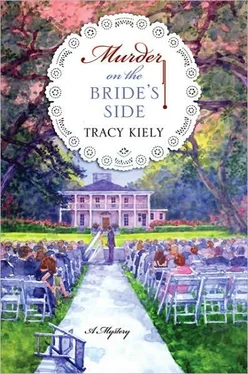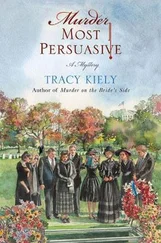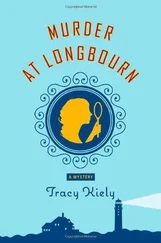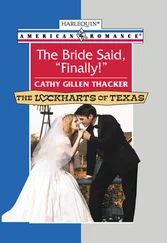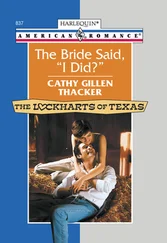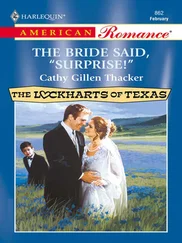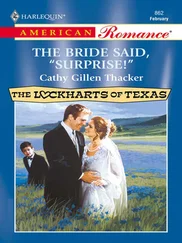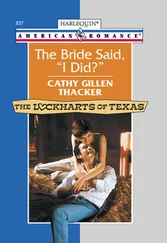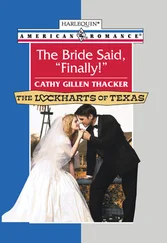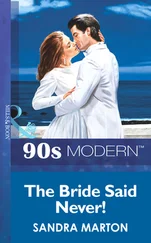David for once was at a loss for words. Finally, he found his voice. “Selling to Landscape Gardens?” he exclaimed, his usually florid cheeks pale. “But you can’t do that!”
Avery cleared his throat and spoke up. “This is all premature, I promise you. We haven’t made any decisions yet.” He shot Roni a quelling look. “And whatever we do decide, we’ll do so as a family.”
David was not mollified. He smashed his fist angrily on the table, causing both me and the silverware to jump. “You simply can’t sell the Garden. It’s preposterous!” he boomed. David’s devotion to the Matthewses’ business might have been more touching were it not for the fact that he was virtually unemployable anywhere else. David held his cushy job as vice president of marketing only because he was married to Claire. He might have been an idiot, but he wasn’t so big an idiot that he didn’t realize this simple fact. Claire said something to him under her breath, no doubt trying to calm his temper. For once, he seemed to listen to her. Taking a deep breath, he ran his large hand through his goopy hair. “Besides,” he said in a more sedate tone, “you know what they say about getting back to work—sometimes it’s the best thing for a recovery!”
Roni brushed aside these words with a lofty wave of her bright pink manicured fingers. The small movement sent a wave of Roni’s trademark perfume across the table—a cloyingly floral scent Bridget referred to as Nauseating Narcissus. If Roni was aware of the mounting tension around her, she did a fine job hiding it. “Oh, they ,” she said, snorting dismissively. “I’m so sick of hearing people quote what they say. They say all sorts of things that we really have no way of proving. For instance, they say that dogs can only see in black and white. But really, how do they know?”
Roni’s daughter, Megan, blinked and, turtlelike, raised her head from her salmon. “Dogs can’t see in color, Mother,” she said.
Megan was Roni’s daughter from a previous marriage. At seventeen, she was everything her mother was not, which, to paraphrase Jane Austen, was enough to alone recommend her. She had blotchy skin and limp nut-brown hair and was what is politely termed a “full-figured girl.” Megan also differed from Roni in that she was both smart and nice. But those traits are rarely consolation to an awkward teenager, especially to one with a mother like Roni.
Roni looked disdainfully at her daughter. “And how do you know that? Did you ever ask one?” Roni glanced coquettishly at the rest of us while she giggled appreciatively at her own cleverness.
“No,” Megan said, unfazed by—or simply used to—her mother’s condescension. “Their eyes don’t have rods or cones. Rods and cones enable sight in color.” She looked back at her salmon and took a bite.
Roni stared at her daughter for a moment, an ugly red blush staining her perfect olive skin. After a beat, she shrugged a tanned shoulder. Taking a sip of her wine, she said, “Well, whatever. Avery is not a dog.” Pausing here as if just having made a meaningful point, she continued, “And I think he needs some rest. He’s given his heart and soul to that business and it’s about time he gave something to himself.” Turning to me, she unexpectedly stretched out her hand in an inclusive gesture. “Elizabeth, I’m sure you agree with me.”
I did not voice my dissent, so I gave no offense. Privately, of course, I did not think for one moment that Roni was concerned in the least about Avery giving something back to himself. Roni was concerned only about Avery giving something to Roni. The Garden had a thriving and loyal customer base. When Avery took it over it was a small local business. But under Avery’s savvy business direction, it had been transformed into a huge and booming one. It had to be worth millions. Avery stood to become a very wealthy man if he sold. It was clear that selling the business was what Roni wanted. And Roni had an annoying way of usually getting what she wanted. I wondered what would happen if I actually voiced this opinion. For starters, Roni would probably stop seeking me out during family events. I didn’t kid myself that she liked me; it was just that other than Avery, I was the only one who wasn’t openly hostile to her.
Luckily, I was spared a response by the announcement that it was time for the speeches and toasts. Peter gave my hand an encouraging squeeze as I nervously got to my feet. With a shaky voice, I began the speech that I had been practicing obsessively over the last week. “Good evening, everyone. For those of you who don’t know me, my name is Elizabeth Parker and I am Bridget’s maid of honor.” So far, so good, I thought, pleased that I had neither fainted, stuttered, nor burst into tears—all, unfortunately, actual events from past forays into the arena of public speaking. I took a deep breath and continued with my short speech. I explained that Bridget and I had been best friends since the fourth grade and that even though many things had changed since then—we no longer loved pink-bubble-gum ice cream or Corey Haim—our friendship had stayed the same. I touted her loyalty, her humor, and her sincerity. I also touted her horrific driving skills, specifically her cheerful disregard for speed limits. After all, it was only after she slammed her car into Colin’s that they had met and begun to date. I closed by predicting that they would have a long and happy life together, especially if Colin handled the driving.
Finished, I collapsed heavily in my seat, my heart thudding in my chest. The table was strangely silent and I wondered if I had inadvertently said something stupid. I leaned over to Peter and whispered, “What’s wrong with everyone? Did I say something wrong? Are they mad about the driving thing?”
He shot me a reassuring smile. “No! You did great!” Glancing at the rest of the table, he added in a low voice, “I think they’re still upset about Avery talking about selling the business.”
A bespectacled waiter in a starched white coat hovered next to me. “Dessert, miss?” he inquired, offering me a plate bearing something decadently chocolate.
“Yes, please.” He deftly placed the plate in front of me. “It looks delicious,” I said. “What is it?”
“Death by Chocolate,” he responded before moving away. Death again, I thought, sinking my fork into the gooey concoction. By my count this made the third time in fewer than twelve hours that death had been referenced. I glanced at Elsie, wondering if she had heard. The fierce expression on her face as she glared at Roni made me bite my tongue. Elsie had an impressive temper. I didn’t want to give her any ideas.
She’s the sort of woman... one would almost feel disposed to bury for nothing: and do it neatly, too!
—CHARLES DICKENS
Two hours later, I was seated on Elsie’s back terrace with Bridget, Colin, Peter, and Harry, watching the fireflies dart and weave across the wide lawn and breathing in the lingering fragrance of nearby rosebushes. As flashes of silvery water from the James River peeked through the trees, lazy images of the Old South (or at least David O. Selznick’s sanitized version of it) featuring chivalrous young men and demure ladies floated before me.
“Christ,” said Bridget. “I need a drink. Anyone else?”
Harry rolled his eyes at Bridget before turning to Colin. “She’s like a delicate flower, my cousin is.”
“Oh, shut up,” Bridget said, kicking him. “I expect you want one, too.”
“Ow!” said Harry, shifting his long legs out of Bridget’s reach. “Take those ridiculous shoes off before you hurt someone. And yes, now that you mention it, I do need a drink. You’ve no idea the intense craving for alcohol my lovely stepmother can inspire.”
Читать дальше
